Redefining Entrepreneurship

photograph by April Bartholomew

o solve critical problems and spark meaningful change across any industry, you need innovative thinkers and resourceful problem-solvers. You need people who are versatile, who view challenges as opportunities and don’t flinch at risk or adversity. You need the people who, above all, are determined to add value to the world. You need entrepreneurs.
Bucknell has furthered its commitment to entrepreneurship education with the launch of the Perricelli-Gegnas Center for Entrepreneurship & Innovation, made possible by a founding gift from Scott ’94, P’25 and Susan Gegnas Perricelli ’94, P’25. “We’re excited for the ways this new center will connect Bucknell’s three colleges and ensure that all students have the opportunity to strengthen critical skills,” Sue says. “It will be a hub for entrepreneurship for the entire Bucknell community and a differentiator for Bucknell.”
A cross-college team of faculty and administrators has been championing the effort: William Meek, the Campbell Rutledge Jr. and Eleanor Rutledge Chair in Management and Entrepreneurship; Erin Jablonski, associate dean of engineering; Emily Martin, the Ellen P. Williams Associate Professor in Music; Steven Stumbris, director of Bucknell’s Small Business Development Center (SBDC); and Sabrina Shankar, associate director of campus activities. Their mission is to bring together and expand Bucknell’s entrepreneurial programming to create a cohesive center.
“I believe that 10 years from now, Bucknell will be recognized as a national leader in entrepreneurship,” Meek says. “The University’s interdisciplinary focus will allow the center to provide guidance, mentorship, networking and experiential learning opportunities for an array of student interests. Bucknell is one of the first liberal arts universities to truly integrate entrepreneurship education and experiential offerings into the curriculum. This ensures that the new center will provide resources for all students.”

“Bucknell already has a diverse ecosystem for entrepreneurship with established infrastructure, including the SBDC’s community-based business incubators in downtown Lewisburg and nearby Danville,” Stumbris says. “The Perricelli-Gegnas Center will enable us to amplify our existing programs and expand them so we can reach more students and provide a more robust entrepreneurial experience.”
In the College of Engineering, Jablonski says engineers who participate in the long-established Nifty Idea Fund (see “Dream Funding”), which awards up to $500 to students with ideas for new ventures, will benefit from the interdisciplinary collaborations the center will foster. “Engineers constantly design, optimize and rethink how things are done,” says Jablonski. “Under the umbrella of the Perricelli-Gegnas Center, engineers will have the opportunity to co-create with faculty, staff and students from the College of Arts & Sciences, the Freeman College of Management and the greater Bucknell community. The center will bring people together for problem-solving and innovation.”
Martin, who runs a consulting company that works with performing artists to facilitate their communication with the public, sees tremendous opportunities for her students. “Artists are known to be creative and take risks,” she says. “A management major can learn from a music major how to think outside the box. A management major can help a music major think analytically about their creative practice.”
The Freeman College has already taken steps to expand its entrepreneurial offerings. In 2023, the college launched an entrepreneurship minor available to students from all majors plus an entrepreneurship concentration for management & organizations majors. The college will add a fourth entrepreneurial course to its catalog this year, and Meek says additional faculty with entrepreneurial expertise will be hired to support the center’s growth.
Meek says he aims to dispel the myth that entrepreneurs are born, not taught. He emphasizes that a robust education combining rigorous coursework and mentorship equips aspiring leaders with essential skills for success. And it offers them a competitive edge over those without formal training.
“At Bucknell, we are being intentional in our efforts to teach students to be thoughtful, systematic and persistent,” Meek says. “Our world is full of problems. It’s the people who see those problems as opportunities who achieve great things.”

Beyond Profits
Seizing Every Opportunity
Pete Kadens ’00
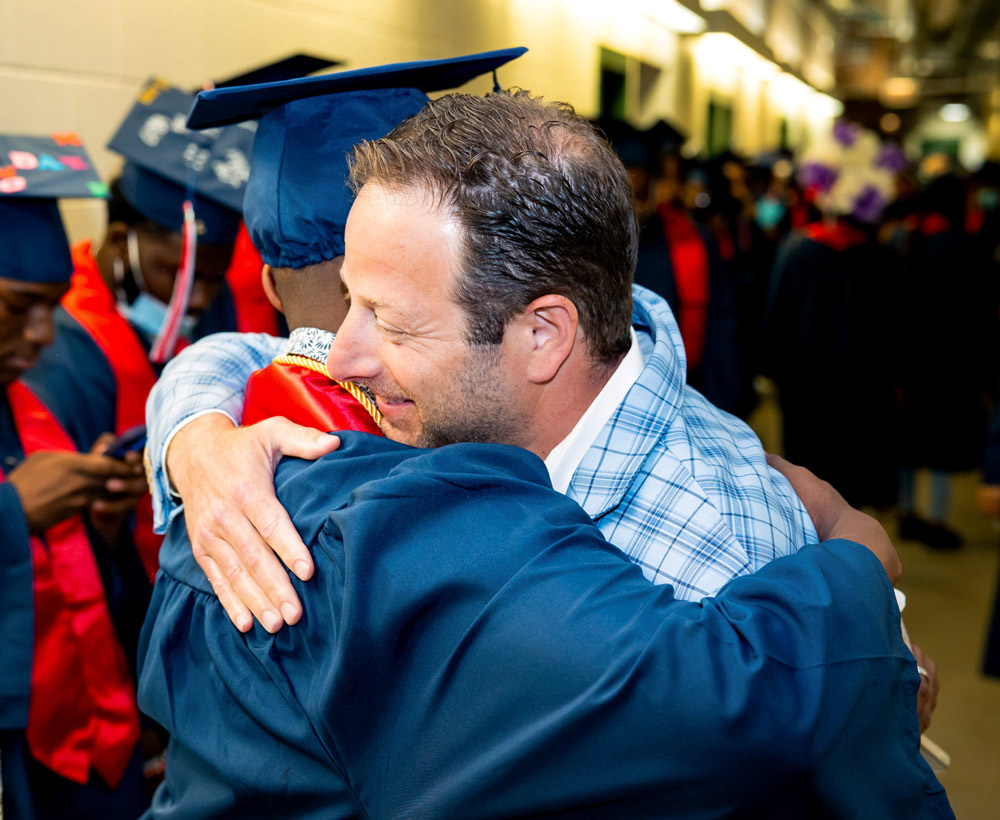
These traits propelled him through a host of entrepreneurial ventures. In 2008, Kadens founded SoCore Energy, one of the nation’s largest solar companies. Six years later, he launched Green Thumb Industries, a cannabis operator valued at $3.5 billion today.
Kadens is driven by market demands, seeking opportunities where demand surpasses supply. His vision is reflected in his diverse array of ventures: He owns an engineering company in Pennsylvania, several funeral homes around the country and an acclaimed Honey Butter Fried Chicken restaurant in Chicago.
Kadens caught the entrepreneurial bug in Bucknell’s Management 101. “I loved everything about leading a company,” he says. “Making money, coming up with new ideas, innovating and making an impact in the community.”
This ethos led him in 2021 to establish Hope Chicago, a $1 billion nonprofit that gives scholarships to economically disadvantaged Chicago teens. He also chairs The Kadens Family Foundation, which provides paths out of poverty through education access.
His advice to future entrepreneurs is to embrace the uncertainty. “Entrepreneurship is never straight up,” he says. “The peaks and valleys make it challenging — but also exciting.”
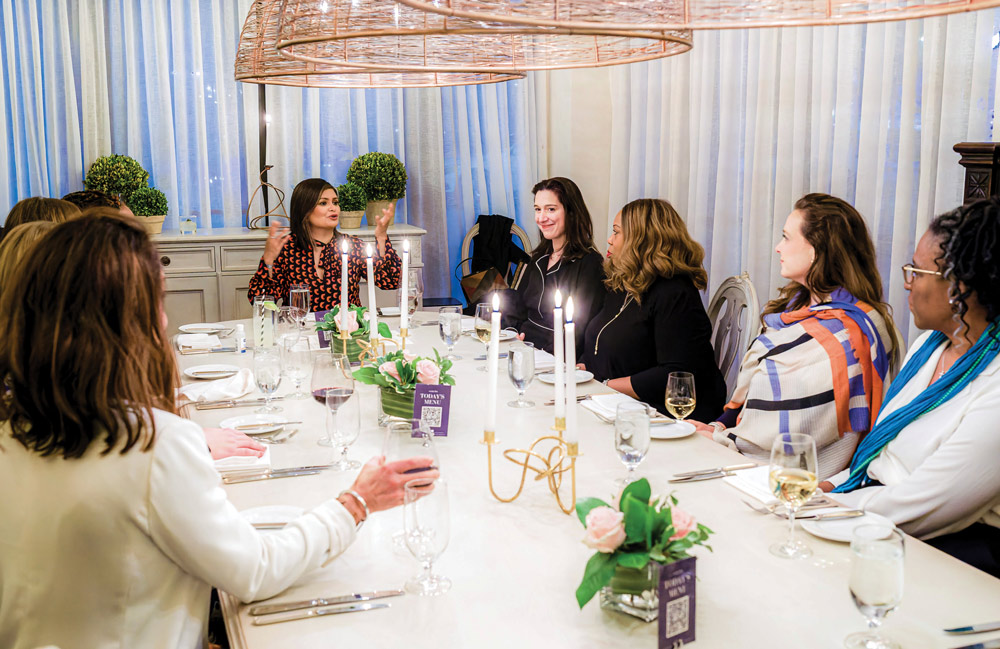
Empowering Leaders
Joya Dass ’95
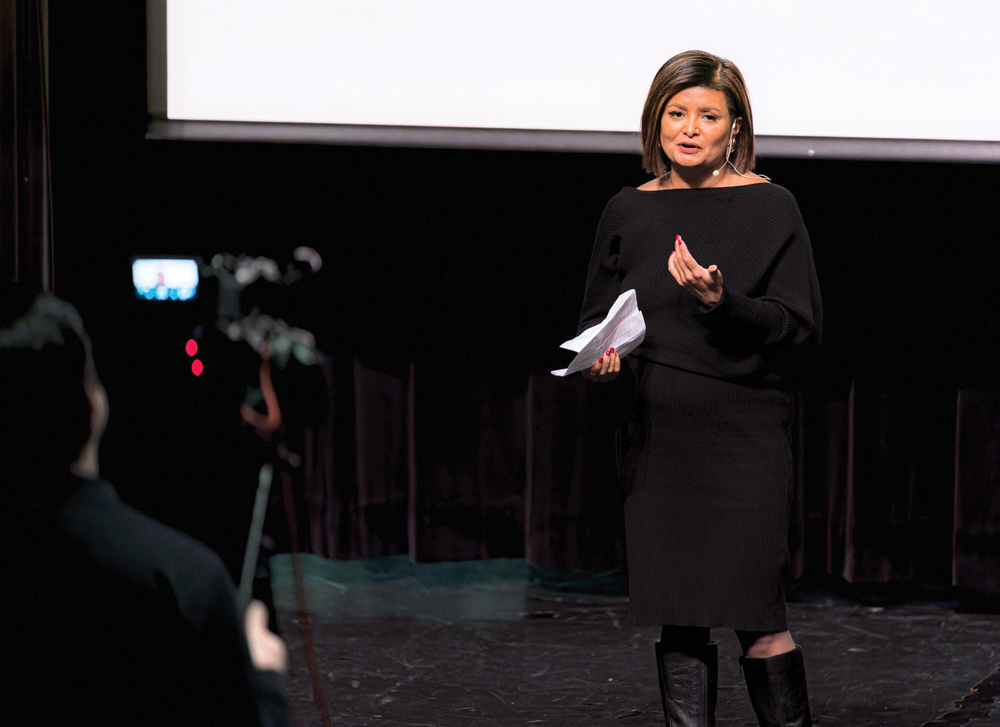
“That ended up being an empowering experience. It taught me to set the vision for my life and not be dependent on others,” says Dass, who double-majored in English and psychology. “I think that’s why I’m an entrepreneur. I like having control.”
Dass runs the Women’s Leadership Lab, in which she helps executive-level workers advance their careers. Her flagship coaching initiative, the Samita Lab Mastermind, is a yearlong program focused on helping women with professional growth and public speaking. The experience culminates with each participant presenting a TEDx-style talk on a New York City stage.
Prior to launching her lab, Dass spent two decades as a broadcast journalist. The skills she honed — how to tell a compelling story, communicate succinctly and project confidence — now inform her coaching. “I help women develop the tools to become powerful leaders, realize their goals and command a room.”
Planting Seeds for the Future
Sam Nana-Sinkam ’10
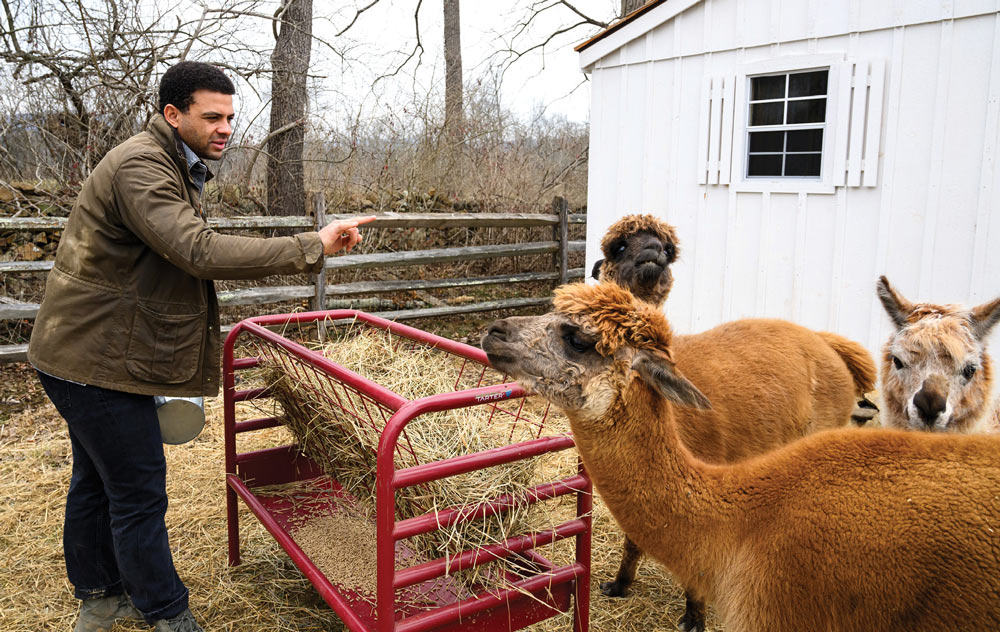
Nana-Sinkam worked at Target as a business analyst and then at Google, where he led teams specializing in analytics, telecommunications and sporting goods before realizing that career success didn’t equate to career satisfaction.
So in 2022, he veered into an entirely new venture: agriculture. He runs a firm called Third Place (meaning not home and not work, but a place that gives additional value to your life), which practices and promotes sustainable farming. By investing in operations that are environmentally responsible, socially equitable and economically viable, he aims to increase access to nutritious food while ensuring future generations have a healthy environment. Third Place’s first offshoot is Bloom Farm, a 40-acre property in Oley, Pa., named for his wife, Sara Bloom ’10. There, Nana-Sinkam is developing an agroforestry system that integrates trees, crops, flowers and livestock in a mutually beneficial manner. By offering food experiences and wellness events, the farm will double as a retreat center.
He relishes being responsible for every facet of his business. “It’s working with the county on easements and zoning; it’s painting, hiring, marketing and fixing septic systems,” he says. “But more than anything, it’s building something I’ll be proud to leave behind.”
The Culture Creator
Mike Maiolo ’89, P’26
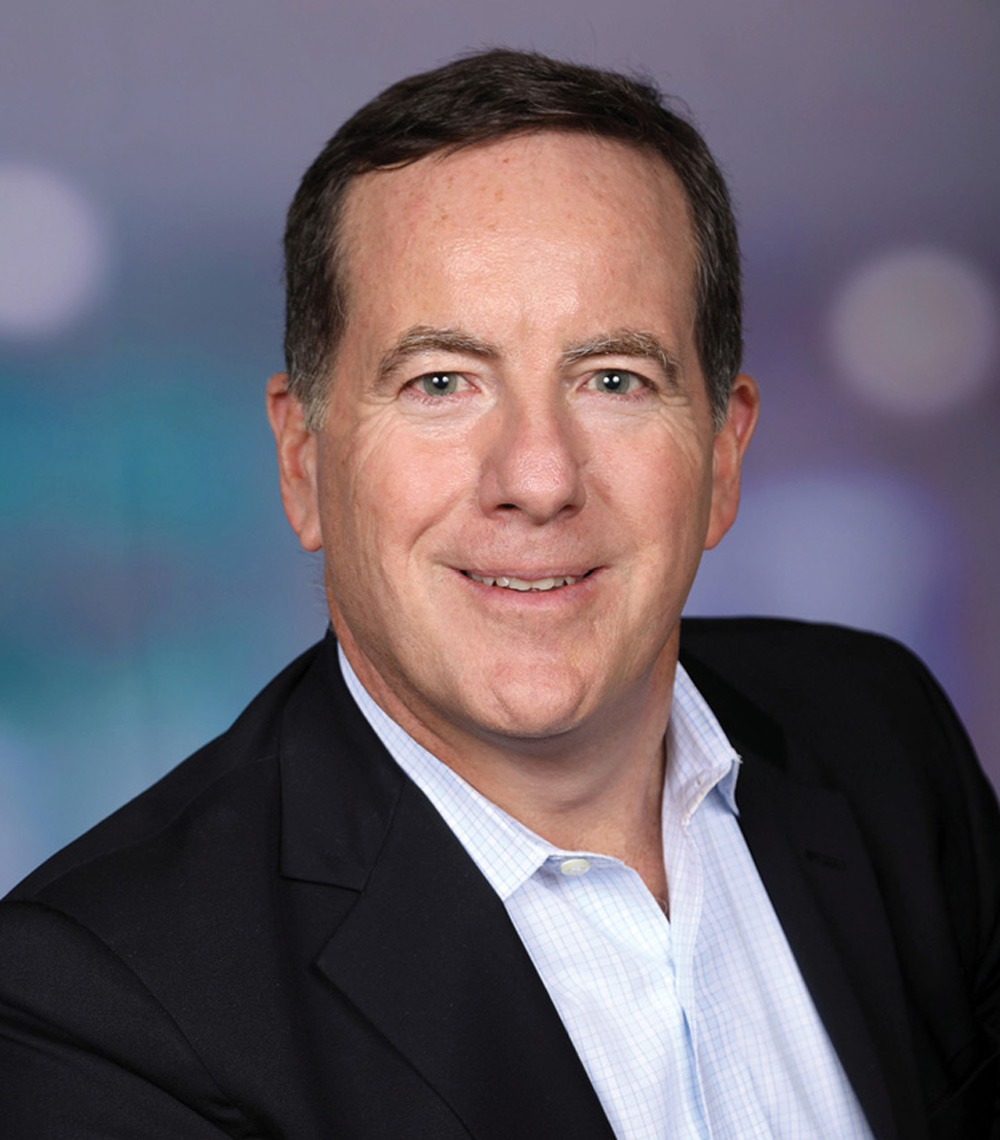
Though Maiolo’s intention had been to attend law school, his inner compass was guiding him in a different direction. After graduation, he entered a management training program at a paper company. Although it was a less prestigious move, Maiolo saw it as “an opportunity to be a leader, not one of the masses,” he says. That training became the foundation for his role in launching two successful software services companies, GenesisSolutions and Rizing.
Today, Maiolo is a leader at Wipro, an $11 billion software management systems company. As the global head of Wipro’s SAP practice (systems, applications and products), Maiolo integrates philosophical principles into his leadership, emphasizing the importance of contributing to others’ well-being. It’s a value he lives through Wipro Cares, the company’s charitable fund. Wipro donates two-thirds of its profits to global charities.
Maiolo takes pride in shaping both business and culture, applying a human-centric leadership approach that prioritizes employees and the betterment of society. “I’m family oriented, and that extends to my co-workers,” he says. “The family I’ve built here is one of my biggest accomplishments.”

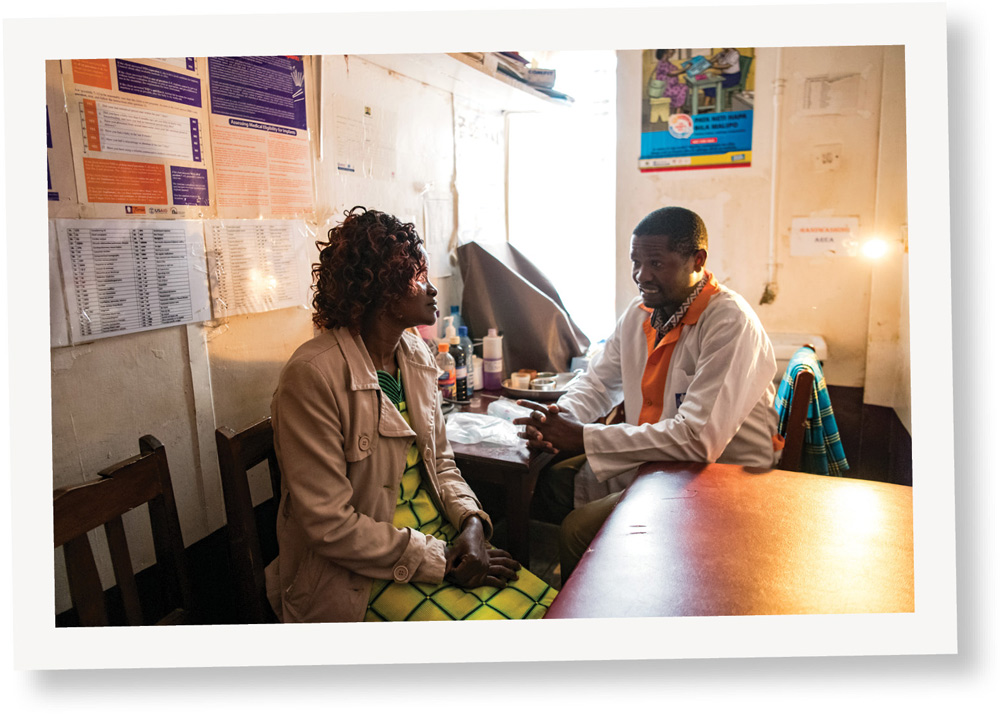

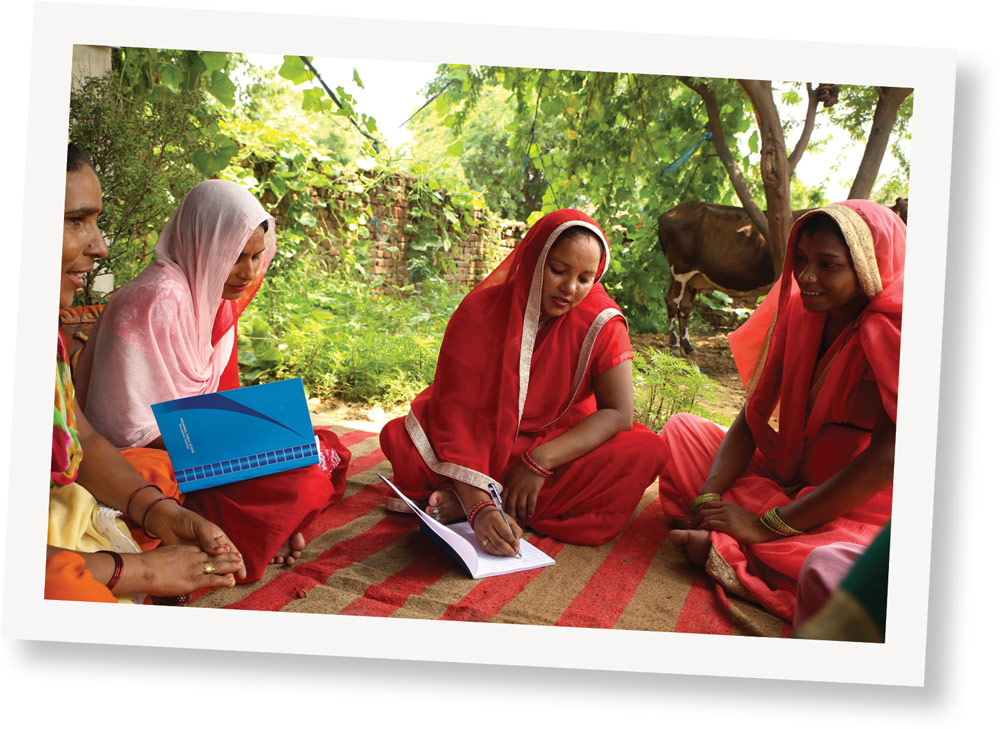
Compelled to Act
Kathy Boselli Vizas ’79

Her priorities shifted in 2015. While serving as associate general counsel for a software company, Vizas visited Myanmar with Population Services International, an organization that helps impoverished communities access health care. While there, she witnessed a woman dying of cervical cancer. “She was suffering terribly, and all I could think was how unnecessary it was,” Vizas says. “I learned how little medical support there is to treat the disease worldwide. I was so frustrated by what I saw. I felt compelled to do something.”
In 2017, she co-founded the nonprofit TogetHER for Health, which advocates for cervical health in under-resourced communities. Vizas learned that many nonprofits work within silos. Drawing from her corporate experience, she focused on establishing a coordinated approach. TogetHER advocates with policy makers for political support and mobilizes on-the-ground partners to expand funding and education for women in low-resource communities, from rural Alabama to Nairobi, Kenya. “Simple, inexpensive care should be available to every woman,” she says, “no matter who she is or where she lives.”